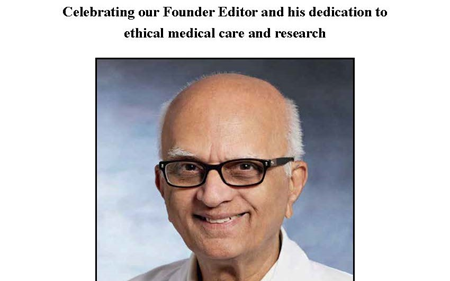AI-enabled healthcare presents exciting opportunities for better healthcare outcomes in India. The governance of any emerging technology can take multiple forms; mitigating risks while incentivising applications will require various policy instruments. Understandin...
Primary care with indigenous communities, just as with any other community, needs compassionate perseverance in individual cases but also touches on a communitarian value- system that can truly give insights into the community’s self-determined idea of health and w...
An interventional neurologist recently responded to my two-year-old article suggesting that Ayurveda should be approached in a qualia-centric manner. He questions the fundamental assumptions of what he calls “Western” science yet tries to use the same to claim that...
We draw attention to the World Medical Association’s (WMA) International Code of Medical Ethics [1] as the benchmark of medical ethics, in the face of inflammatory and discriminatory statements issued by some senior Indian doctors against Bangladeshi patients. Thes...
The passing of Sunil K Pandya (SKP) on December 17, 2024, evoked memories of his remarkable life both as an individual and a medical professional in many physicians, patients and colleagues. In her tribute, Lopa Mehta has described him as “Medical Ethics personifie...
With the passing away of Dr Sunil Krishnalal Pandya an era has come to an end. We have lost someone who was Medical Ethics personified, an astute clinician, a dexterous neurosurgeon, an ardent historian, a philosopher who stood high above worldly gains and fame. He...
The reflective article by Ravichandra Karkal in IJME effectively highlights the role of the doctor-patient relationship and impact of empathy in medical practice [1]. Indeed, this compelling case history highlights how connecting with patients on a personal level c...
It has been just over a week since I received the news that my dear friend Anita Ghai was in the ICU. The next day she had left us. I had known Anita for over four decades since our days as undergraduate students of Psychology at Indraprastha College. Knowing Anita...
Background: Professionalism has been identified as a key competency for physicians to conduct, effective and ethical practice. The current competency-based medical education curriculum lays great emphasis on the development of attitude, ethics, and communication (A...

